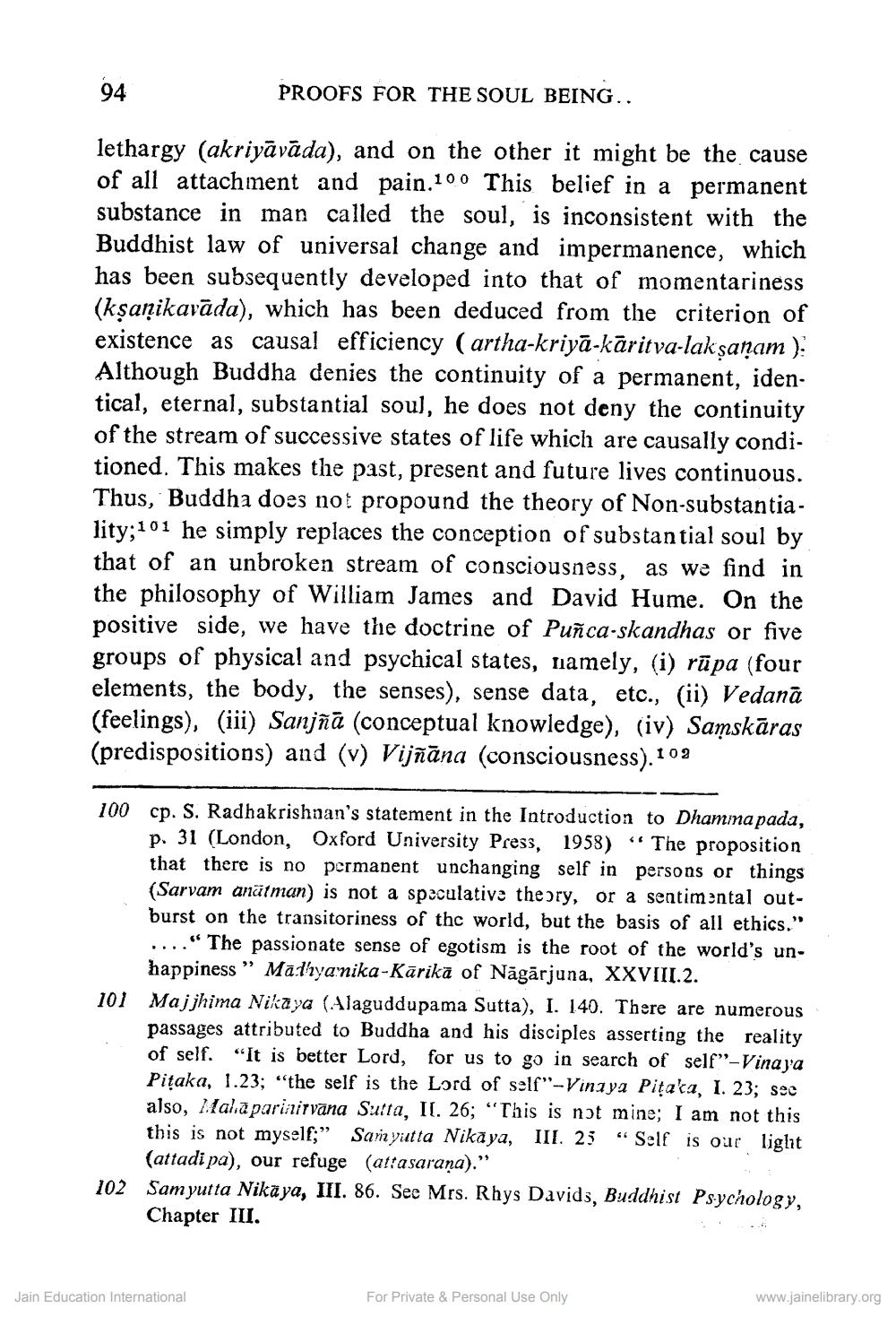________________
PROOFS FOR THE SOUL BEING..
lethargy (akriyāvāda), and on the other it might be the cause of all attachment and pain 100 This belief in a permanent substance in man called the soul, is inconsistent with the Buddhist law of universal change and impermanence, which has been subsequently developed into that of momentariness (kşanikavāda), which has been deduced from the criterion of existence as causal efficiency (artha-kriyā-kāritva-lak saņam )! Although Buddha denies the continuity of a permanent, identical, eternal, substantial soul, he does not deny the continuity of the stream of successive states of life which are causally conditioned. This makes the past, present and future lives continuous. Thus, Buddha does not propound the theory of Non-substantiality;101 he simply replaces the conception of substantial soul by that of an unbroken stream of consciousness, as we find in the philosophy of William James and David Hume. On the positive side, we have the doctrine of Puñca-skandhas or five groups of physical and psychical states, namely, (i) rūpa (four elements, the body, the senses), sense data, etc., (ii) Vedanā (feelings), (iii) Sanjñā (conceptual knowledge), (iv) Samskāras (predispositions) and (v) Vijñāna (consciousness). 109
100 cp. S. Radhakrishnan's statement in the Introduction to Dhammapada,
p. 31 (London, Oxford University Press, 1958) “The proposition that there is no permanent unchanging self in persons or things (Sarvam anätman) is not a speculative theory, or a sentimental outburst on the transitoriness of the world, but the basis of all ethics." ...." The passionate sense of egotism is the root of the world's un
happiness” Mathyanika-Kārikā of Nāgārjuna, XXVIII.2. 101 Mai ihima Nikaya (Alaguddupama Sutta). I. 140. There are nu
passages attributed to Buddha and his disciples asserting the reality of self. "It is better Lord, for us to go in search of self”-Vinaya Pițaka, 1.23; "the self is the Lord of self”-Vinaya Pitaka, I. 23; see also, Ilala parinirvana Sutta. II. 26; "This is not mine: I am not this this is not myself;" Sanyutta Nikaya, III. 23 “Self is our light
(attadi pa), our refuge (attasarana)." 102 Sam yutta Nikaya, III. 86. See Mrs. Rhys Davids, Buddhist Psychology,
Chapter III.
Jain Education International
For Private & Personal Use Only
www.jainelibrary.org




